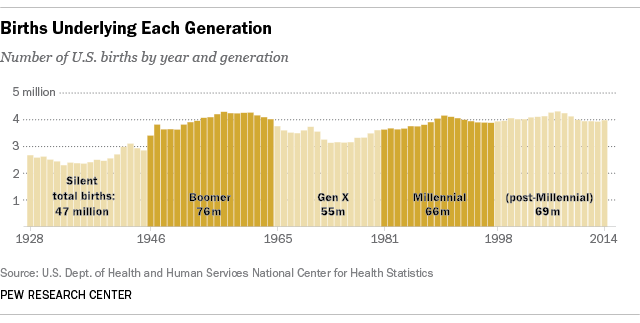From NY Times: As Local News Dies, a Pay-for-Play Network Rises in Its Place
A nationwide operation of 1,300 local sites publishes coverage that is ordered up by Republican groups and corporate P.R. firms.
US States by urbanization from US census
Seeing when the population of various states went from rural to urbanization showed how dramatically the period from 1980 to now has been. This information is updated in the 10-year census so the 2020 results will show more urbanization.
https://www.icip.iastate.edu/tables/population/urban-pct-states
Why brand safety is important for advertising-backed publishers
One interesting point in this WSJ story, https://www.wsj.com/articles/tumblr-and-the-end-of-the-eyeballs-are-everything-era-11566014411?shareToken=st25023c0944c54846845dba9de27f1c68, is that Tumblr’s openness to all forms of content, made it an unsafe place for advertisers. Tumblr was unable to channel advertising away from the content advertisers wanted to avoid while alternatives, such as Facebook, were able to do as advertisers requested.
Advertisers have blacklists of words in content they do not want ads to appear with. In a story in the WSJ on Thursday, the list of words includes Trump, bomb, attack, crash and accident, see https://www.wsj.com/articles/advertisers-blacklist-hard-news-including-trump-fearing-backlash-11565879086?shareToken=sta8e05cebd27c4415b477f28a58161263. Even in business writing, words like crash and accident, are often in articles, in secondary meanings. For example, during last week’s 800-point DJIA drop on Wednesday, many called it a crash.
Airlines don’t like their ads to appear around stories on plane crashes. I get that. When I was young, I was once afraid to fly because of stories I had seen on TV about a plane crash a few weeks earlier. Adults even now often say they feel nervous flying soon after plane crashes, but they still fly. It would be too easy to for the airline’s ads to be viewed as in bad taste. Better to just avoid the publisher’s content.

1776 by David McCullough
 It’s a great reminder that it wasn’t as certain at the time, as we see it now. David McCullough makes the story compelling and insightful. Americans often forget just how uncertain the outcome was. It makes me appreciate the outcome more.
It’s a great reminder that it wasn’t as certain at the time, as we see it now. David McCullough makes the story compelling and insightful. Americans often forget just how uncertain the outcome was. It makes me appreciate the outcome more.
McCullough is also a writer who I can enjoy reading and who I can enjoy listening to when he reads his own books.
Where Bugs Bunny character probably got his start
I’ve always enjoyed Bugs Bunny, but there’s a character with a small role in this MGM cartoon, that looks like the early version of Bugs Bunny when he debuted in 1938. One reason for the might have been because Rudolf Ising and Hugh Harman, a director of this MGM movie, went on to created the Looney Tunes and Merry Melody series at Warner Brothers.
http://www.tcm.com/tcmdb/title/310847/The-Hound-and-the-Rabbit/ and https://en.wikipedia.org/wiki/Bugs_Bunny.
An Apollo mission I won’t forget
CBS: It was the most stunning holiday program I’ve ever seen.
Excel forever
Best graph of the story and close to home: “One of the reasons Excel endures, he added, is the sheer amount of time employees spend futzing with it. “There’s a Red Badge of Courage that people wear when they stay up all night and work a spreadsheet to get something that they think is unique and artisanal.”
Clearer insight into the impact of millennials on the demographics of the U.S.
A lot is said about millennials, but there were two things in this article by Pew Research that I don’t recall reading before. The first is that 15% of the millennial population numbers includes people not born in the U.S. The number of millennials born in the U.S. was 10 million less than the number of U.S-born baby boomers. The second is that the group after the millennials, which Pew currently calls post-millennial, had more born in the U.S. than millennials. We’ll probably start hearing more about the post-millennial generation as soon as better name is found.

Twitter’s shrinking roll in social media
From Pew Research Center.
Tapestry descriptions from Esri
Esri classifies areas of you city in various descriptions